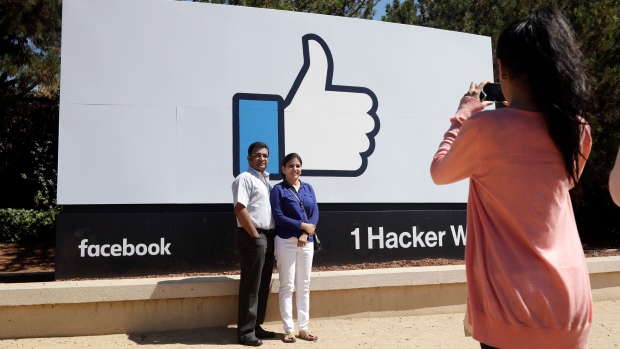Sep 8, 2016
Facebook launches new tool allowing small businesses to target global customers

Facebook (FB.O) is banking on Canadian small businesses in an effort to continue fueling the growth of its own business.
The company unveiled on Thursday a range of new tools for advertisers seeking to expand their customer base beyond Canada. "We're in the business of ensuring small businesses become large businesses...and local businesses become global businesses," said Jordan Banks, managing director of Facebook and Instagram Canada, in an interview with BNN. "And it's happening at a scale and predictability right now that is amazing."
Facebook's new offerings include a feature called Lookalike Audiences, which helps advertisers target customers in new countries that are similar to their existing customer base. Banks noted there are 445 million people outside of Canada connecting to a Canadian business on Facebook.
Facebook ended its most recent quarter with more than 1.7 billion monthly active users. And businesses are a growing part of that story. On a July 27 conference call, Chief Operating Officer Sheryl Sandberg noted Facebook now has 60 million monthly active business pages. As for sales, Facebook generated more than US$6.4 billion in revenue in its second quarter, with 97 per cent coming from advertising. By comparison, the company generated less than US$2 billion for all of 2010 -- the year Banks joined Facebook.
"The future growth in jobs and the economy of our country rests solely on the shoulders of small business," Banks told BNN. According to the Canadian government, 98 per cent of all businesses in Canada are small businesses. As of 2015, they employed 8.2 million Canadians, which represents more than 70 per cent of the private labour force.
Facebook's new features are also meant to highlight the company's Canadian user base to businesses based outside of Canada. In his BNN interview, Banks highlighted that 70 per cent of Canadians on Facebook are connected to a business based outside the country.
Of course, social media users can be highly sensitive to how data is shared with advertisers. "User data is sacrosanct," said Banks. "It is not shared in any personally identifiable way. And, in fact, what we do with the data is provide a better and more customized user experience."






